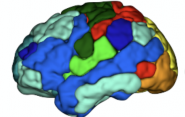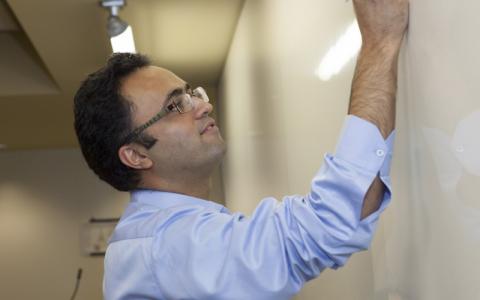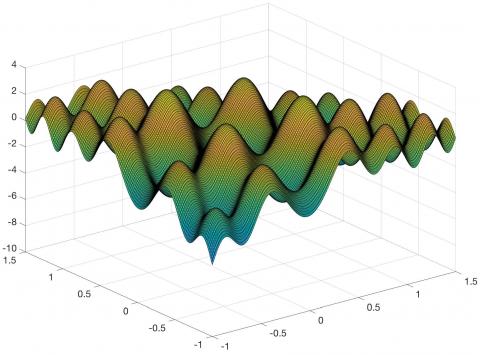For Data Science that Delves into the Brain, Amin Karbasi Wins CAREER Award

For research that could lead to - among other advances – better analysis of the brain, Amin Karbasi has won a 2019 Faculty Early Career Development CAREER Award from the National Science Foundation (NSF).
 Karbasi, assistant professor of electrical engineering & computer science, will use the award to focus on developing fundamentally new algorithms to assist in searching through massive amounts of data to make quick and informed decisions. Specifically, he’s focusing on discrete data, which takes on a finite set of possible values - these include phrases found in text and particular objects in an image. Nearly all aspects of data science involve methods of discrete optimization. And as science and engineering become more reliant on computational methods, it’s critical to know which discrete formulations can be solved efficiently and how to do so.
Karbasi, assistant professor of electrical engineering & computer science, will use the award to focus on developing fundamentally new algorithms to assist in searching through massive amounts of data to make quick and informed decisions. Specifically, he’s focusing on discrete data, which takes on a finite set of possible values - these include phrases found in text and particular objects in an image. Nearly all aspects of data science involve methods of discrete optimization. And as science and engineering become more reliant on computational methods, it’s critical to know which discrete formulations can be solved efficiently and how to do so.
Part of the project involves developing robust algorithms - that is, those that stand up to real-world conditions and not just the controlled circumstances of theoretical models. Changes in data can wreak havoc on a theoretical model, for instance, or scaling up in size can cause the model to fall apart.
“So far, most of the discrete optimization methods we’re using have been relying on the assumption that the world is perfect,” said Karbasi, who is also a faculty member at the Yale Institute for Network Science (YINS). “Of course, if you abstract everything away and assume everything is perfect, it’s a mathematical problem. It’s easy to come up with methods in a sterilized world, and they work very well. But change the parameters, and it completely collapses.”
One application Karbasi is aiming for with this research is a better way to read the brain. Functional magnetic resonance imaging (fMRI) is one of the technologies that have made it possible to measure neural activity in the human brain. The data sets it produces, though, are massive and extremely complex. As a result, analyzing the human brain is difficult due to the prohibitive computational cost and lack of predictive power. Karbasi and his team of researchers aim to develop the first machine learning algorithms that can process and interpret billions of neural signals in real-time. The difference could be getting results of a test in minutes, rather than days.
For another potential application, Karbasi aims to design algorithms that automatically teach humans using only a small number of examples. Doing so could help in understanding and predicting how humans learn, which is important not only for areas such as education and cognitive psychology, but could also inspire the development of new machine learning models.

